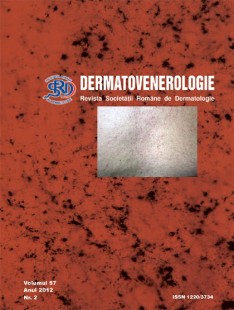Referate generale
Psoriazis vulgar si comorbiditati
Psoriazisul vulgar este o afectiune inflamatorie
cronica, multisistemica, mediata imun ce poate debuta la
orice varsta. Afectiunea variaza ca severitate in functie de
factorii ereditari si de mediu. Desi psoriazisul este
caracterizat printr-o proliferare epidermica sistemul imun
are un rol important in derularea bolii.
Procesul inflamator implicat in psoriazisul vulgar explica asocierii acestuia cu comorbiditati cum ar fi : artrita psoriazica, sindrom metabolic, boli inflamatorii intestinale, afectiuni cardio-vasculare. Implicarea LyT in imunopatogeneza determina un status proinflamator raspunzator de prezenta acestora. In prezent sunt dezvoltate tratamente noi ce tintesc noile verigi implicate in patogeneza psoriazisului vulgar.
Profilul de siguranta al acestor agenti este superior fata de cel al medicamentelor de generatie mai veche dar sunt necesare perioade mai lungi pentru a obtine remisiunea acestora. Studii recente arata ca utilizarea precoce a agentilor anti TNα imbunatatesc calitatea vietii pacentilor si protejeaza impotriva comorbiditatilor.
Procesul inflamator implicat in psoriazisul vulgar explica asocierii acestuia cu comorbiditati cum ar fi : artrita psoriazica, sindrom metabolic, boli inflamatorii intestinale, afectiuni cardio-vasculare. Implicarea LyT in imunopatogeneza determina un status proinflamator raspunzator de prezenta acestora. In prezent sunt dezvoltate tratamente noi ce tintesc noile verigi implicate in patogeneza psoriazisului vulgar.
Profilul de siguranta al acestor agenti este superior fata de cel al medicamentelor de generatie mai veche dar sunt necesare perioade mai lungi pentru a obtine remisiunea acestora. Studii recente arata ca utilizarea precoce a agentilor anti TNα imbunatatesc calitatea vietii pacentilor si protejeaza impotriva comorbiditatilor.


